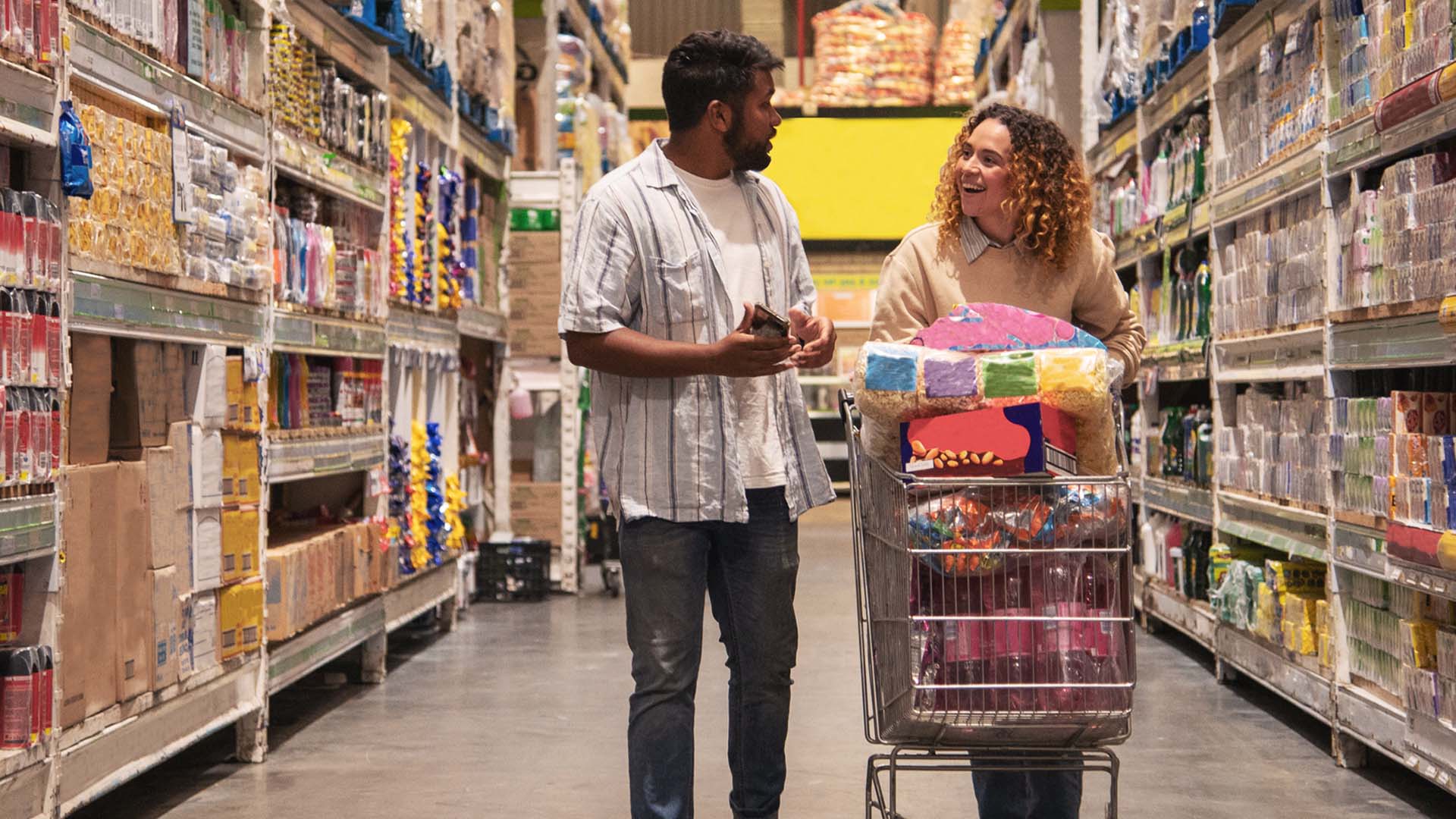Shopping online has changed dramatically in the past few years. You now have the convenience of online shopping, secure payment systems, and door-to-door deliveries for many products, including your weekly groceries.
Have you ever considered how online shopping options are changing the way you shop? And with the recent entry of international online e-commerce giants into the local market, how will the shopping landscape change as a whole?
The rise of e-commerce in South Africa
A recent industry study by World Wide Worx revealed significant growth in South Africa’s online shopping sector. It reached R71 billion in 2023 – a 29% increase from 2022 – and the sector is on track to break the R100 billion mark by 2026.
The ‘pandemic dividend’ drove the initial boom in online sales in 2020, following a massive increase in demand for home deliveries during lockdowns. But since then, consumers have moved even more of their traditional shopping online – partly because we’re more familiar with the process and feel we can trust secure online payment systems.
South Africa’s main retailers are also competing for our business online with offers, promotions and streamlined payments. The World Wide Worx study revealed that Shoprite Checkers’ Sixty60 service saw a 63% increase in the second half of 2023, while Pick n Pay grew its online sales by 76% and Woolworths by 47%. In contrast, the country’s largest online-only retailer, Takealot, grew sales by only 6%. The overall growth coincided with a slight decline in total retail sales, which emphasises the huge growth of online shopping.
Most of us have become more selective and considered in our spending, given SA’s economic slowdown and the global cost of living crisis. But at the same time, competition in the South African online market and our freedom to choose between services are showing healthy growth.
Amazon’s presence locally is also expected to make courier and warehousing services more competitive
Consumer behaviour in South Africa
As consumers become more proactive and creative in cost-reduction strategies, retailers need to offer more to keep a competitive edge. What are some consumer trends that you should take advantage of?
- Omnichannel shopping
The global NIQ Consumer Outlook Report for 2024 shows that consumers gain more choices by using online shopping channels. You might see something in-store but decide to shop for it online, to take advantage of promotional prices at another retailer. The research shows that 35% of South African shoppers already use their phones in-store to help make buying decisions.
- Saving money
Most shoppers are looking for the lowest price. Bulk buying when products are on sale, or looking out for discounts and promotional offers, can give you more bang for your shopping buck. Shopping online makes the search so much easier.
- Delivery excellence
The growth in online shopping has also raised consumer expectations – we now expect whatever we buy online to be delivered quickly and in perfect condition. This is another big change for South African retailers, as they now need to manage deliveries consistently within narrow time windows. Grocery chains can generally offer next-day delivery, although Shoprite has introduced their Sixty60 service, and Takealot is trialling 1-hour delivery for tech and other goods.
International vs local: The battle for market share
Asian online retailers Shein and Temu are among the recent entrants to the South African online market, grabbing market share and increasing pricing pressure on local retailers. Amazon’s recent arrival in SA is expected to give you more choices and drive prices down. The expansion of the market also creates new business and job opportunities in the delivery of goods and order fulfilment.
China-based Shein was the most downloaded shopping app in South Africa in 2023. This year, however, Shein has been under investigation by the Department of Trade, Industry and Competition, for potentially avoiding import taxes. Another Chinese online retailer, Temu, entered the South African market in January 2024, and within 3 months had become the most downloaded app in local app stores, on the back of massive advertising on Google and Facebook.
Amazon.co.za arrived in May 2024. It plans to offer a selection of local and international brands across 20 different product categories, for both same-day and next-day delivery, along with more than 3,000 pick-up points and an easy return system. They’re offering free delivery on your first order and free delivery for subsequent orders above R500.
Amazon also announced that it will follow its global policy of sourcing and selling up to 60% of its goods from independent small and medium enterprises, which is good news if you’re a small local retailer. Amazon also offers onboarding tools, payment processing solutions, and promotional features to help you reach customers and boost your business online.
Amazon’s presence locally is also expected to make courier and warehousing services more competitive, as they ramp up their offerings to meet increased demand.
Nedbank’s own online shopping platform, Avo SuperShop. offers a wide range of shopping categories. You can also link your online store to Avo and expand your e-commerce market reach instantly.
For small business opportunities that arise as online shopping grows in SA, see our guide to setting up your own online store, or consult our small business services for support and advice on adapting your business to online orders and deliveries.








